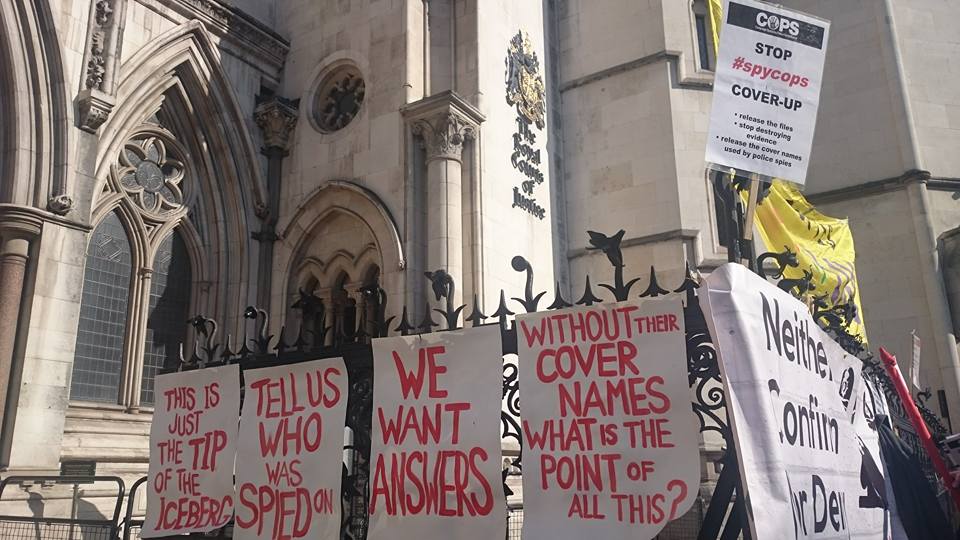[contextly_auto_sidebar id=”Rd5ndOQ4yZb6cunt5em7nbU0YN2pl4wU”]
 The construction industry blacklist has appeared regularly in the media since it was discovered in 2009 following a raid by the Information Commissioner’s Office (ICO). Over 40 of the UK’s largest contractors held a covert database of trade unionists who had complained about unpaid wages or safety on building sites through an organisation called The Consulting Association.
The construction industry blacklist has appeared regularly in the media since it was discovered in 2009 following a raid by the Information Commissioner’s Office (ICO). Over 40 of the UK’s largest contractors held a covert database of trade unionists who had complained about unpaid wages or safety on building sites through an organisation called The Consulting Association.
The database was used to check whenever workers applied to work on major projects and resulted in sackings and repeated refusals of employment over a period of decades. All this was meticulously recorded on 3,213 files using secret codes for the companies and the senior directors who oversaw he operation, with invoices sent for usage. You might have thought, that with mountains of documents, the individuals who had suffered would easily find a legal remedy to achieve some kind of justice. If only.
Initially hundreds of blacklisted workers applied for their files from the ICO and were supplied with what appeared to be prima facie evidence of unfair dismissal and various other forms of victimisation and discrimination. In the summer of 2009, there were a flurry of Employment Tribunal claims submitted and by November that year, when a collective case management discussion was held in Manchester, the blacklisted workers and their lawyers were optimistic of their prospects.
That optimism didn’t last very long. Within months, virtually every ET claim had been thrown out without the evidence even being heard in open court. The reason relates to time-limits.
Every ET claim needs to be submitted within three months of the incident taking place. This is a very strict rule and only in exceptional circumstances will the three months be extended (for instance if someone has been hospitalised for the entire period). In the blacklisting cases, the acts of discrimination or unfair dismissals complained about had not taken place three months earlier but sometimes three decades ago.
The claimants argued that deliberate deception by the blacklisting firms meant that it was not ‘reasonably practicable’ for them to claim at the time of the incident. The courts accepted this but the law does not state how long an extension should be granted for.
In every case, the claimants completed their applications within a few weeks of receiving their file and in most cases well within the three months allowed in normal circumstances. But when Judge Brain sitting alone in Manchester heard the cases, he dismissed every single claim based upon the time-limit rule. The written judgements claim that even though he was willing to grant an extension, this should amount to only a few days. The decision as to how long an extension to grant is entirely in the hands of the judge. It was within his power to allow some leniency to ex-construction workers with no legal training who had completed the tribunal forms themselves. But he decided not to and only five cases ever made it to a full hearing.
Of these, three cases supported by the UNITE union were successful and the workers won compensation of a few thousand pounds because of a specific incidence of unfair dismissal or failure to appoint due to union membership. Sometimes the workers had suffered years of unemployment due to the blacklist, yet the compensation equated to no more than a few weeks lost wages.
The remaining two cases both lost because of ‘employee status’. In both cases, Dooley v Balfour Beatty and Smith v Carillion the companies admitted using the Consulting Association database to blacklist the union activists but won the court case because neither worker was directly employed by the main contractor that carried out the blacklisting. Dooley worked for a brickwork sub-contractor and Smith for an employment agency. In UK employment law, legal rights such as redundancy, unfair dismissal and victimisation for raising safety concerns only apply to direct employees. The impact for millions of casualised agency workers or those on zero hours contracts effectively have little or no employment rights – even where they have documentary evidence and when employers admit the victimisation.

Dave Smith (second from right) with legal team from Smith v Carillion test case.
(L-R) Declan Owens, David Renton, Smith, and John Hendy QC
(all acting pro-bono via the Free Representation Unit)
The Smith v Carillion case has been appealed using the Human Rights Act, all the way to the Court of Appeal. The legal argument being that blacklisting is a breach of Article 8 (privacy) and Article 11 (freedom of association) of the European Convention on Human Rights (ECHR). Human rights are supposed to apply to everyone not just a particular category of employee. So either the agency worker should be protected or else UK employment law does not comply with the ECHR, and should therefore be amended. In February 2015, the UK government even intervened in the case against Smith. The reserved judgement is expected within the next few months. There are currently two cases submitted to the European Court of Human Rights in Strasburg, the judgements in these cases are not expected for several years.
The Smith v Carillion test case has taken six years and had nearly 20 days in court, with QCs representing on both sides. The legal fees alone would financially ruin most and are another very real barrier to justice for working people.
The final throw of the legal dice is the ‘group litigation’ currently at the High Court. This is equivalent to a US style class action and is arguing that the Consulting Association was an unlawful conspiracy and claiming damages for loss of earnings and defamation. Around 500 workers are up against all the major blacklisting companies. The legal bills have already exceeded £10million and the trial date is not even confirmed yet but is likely to be in the summer of 2016.
Six years of legal battle and no real end in sight. Many have passed away in the process. Whatever the legal outcome, it will not be real justice.







